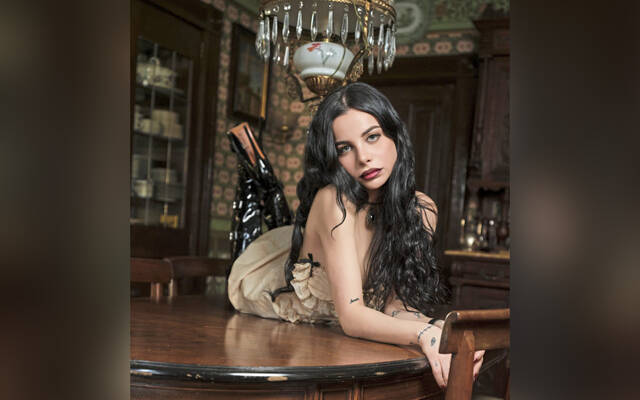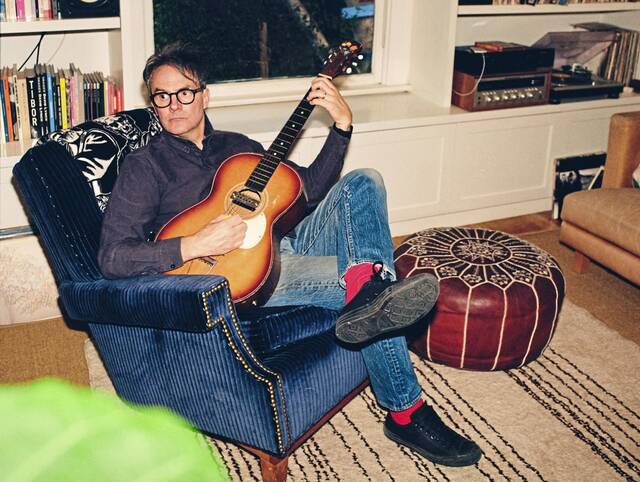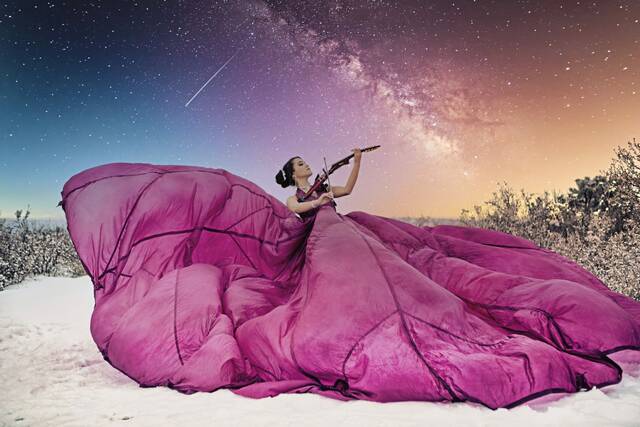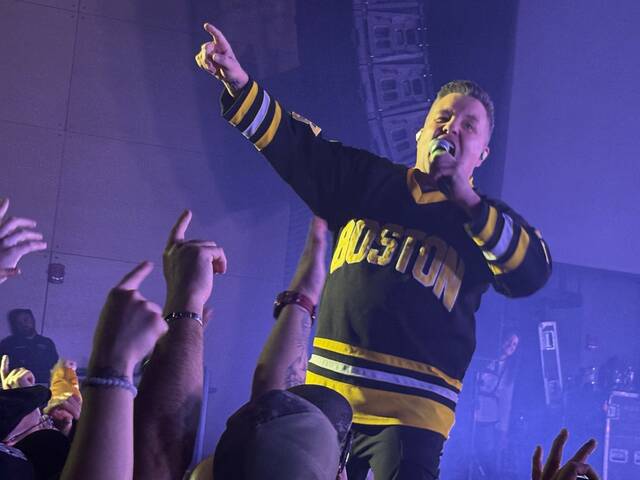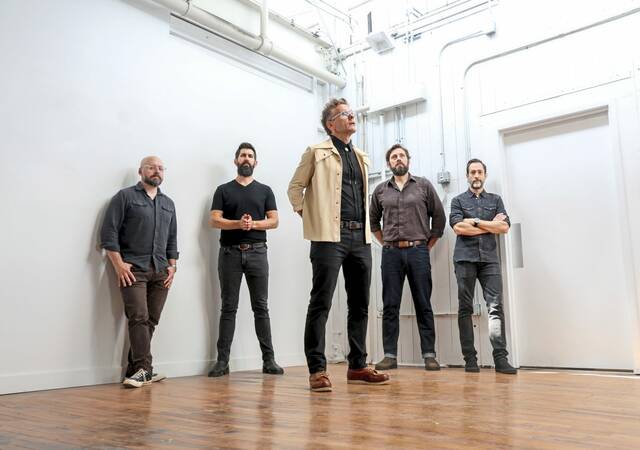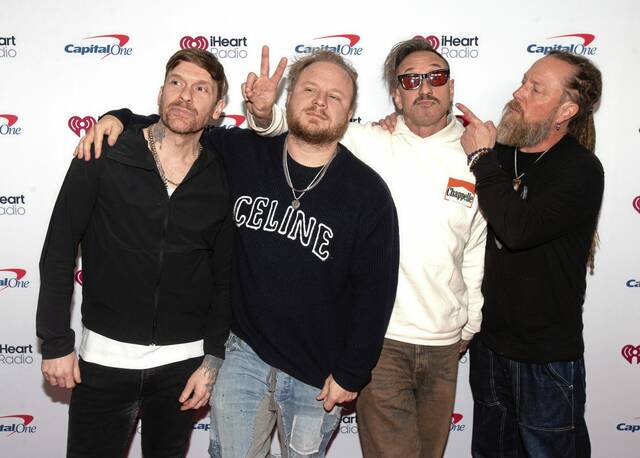Dark pop singer Ellise is going out on her first headlining tour this summer, and she couldn’t have been happier when she learned where it would be starting.
Her Pretty Evil tour kicks off in Pittsburgh — July 31 at Thunderbird Music Hall in Lawrenceville, to be precise — bringing the 26-year-old back to her father’s hometown.
“I have my whole dad’s side out there basically,” she said in a recent phone call. “I would go up in the summers and just hang with my dad’s side of the family, so I have a lot of fond childhood memories of Pittsburgh.”
Her father was born in Pittsburgh, and her grandparents lived in Clairton before moving to Bethel Park.
“Actually on my shelf — I’m looking at it right now — I have a little jewelry box my grandma bought me from Kennywood when I was probably six and I’ve just always kept it,” she said. “I loved Kennywood as a kid.”
Ellise opened the show for Madison Beer at the Roxian Theatre last year, giving her a chance to boast to the crowd of her family’s love for the Steelers.
“My band and I got off stage, and my drummer looked at me and was like, ‘That was the best (expletive) crowd of the whole tour so far!’ And I was like, yeah!” she said with a laugh. “It was great.”
The upcoming tour is in support of Ellise’s sophomore album, “Pretty Evil,” bookended by tracks “Pretty” and “Evil.” The album, which came out at the end of March, also features singles like “Bite,” “Dead2me” and “Valentine.”
Calling the new album a “sonic departure” from her 2021 debut “Chaotic,” Ellise said it continues her evolution from the early days of her career, when she was a finalist in the 2016 iHeartRadio Rising Star competition. In the ensuing years, she bounced between a couple labels, did a guest spot on an Iggy Azalea album and released her “911” single, which has more than 440 million streams worldwide.
The idea of touring in a few months, getting to design her own props and stage setup, had Ellise stoked to hit the road.
“I love performing. I just love being in front of a crowd. I have the opposite of stage fright. I love to sing for people,” she said. “Also I think a real highlight of touring in general is getting to meet your fans face to face.
“Usually, you just see people on the internet and you can read all of these sweet comments and messages, and it’s super nice and great that we have the internet and can connect with fans in that way, but nothing hits harder than just getting to hug someone that is telling you their life story and telling you how your music helps them in some way, so I would say that’s definitely the best part.”
In a call last month from North Hollywood, Ellise discussed the “Pretty Evil” album, its inspirations and more:
What were you hoping to express with this new album?
The creation of this album, even though I only started making the actual songs about a year ago, is really like a three- or four-year creation process because I was making and scrapping so much. During that time I was in this really just not right relationship, and it was my first really long serious relationship. So what I wanted to come across on the album was sort of that cycle of love and loss and all of the emotions that go along with that. And that’s kind of why I named the album “Pretty Evil” and have those as the first and last tracks because those songs kind of have a similar meaning. They’re sort of two sides of the same coin. So I wanted the whole album to feel very cyclical, like it’s a life cycle of a love.
Listening to it, it seemed like there were some bad or broken relationships fueling the songs like “Evil,” “Feel Better Together” and “Dead2me.” How did writing those songs help you move past that then?
Honestly in this case, yes, which is different for me because usually I tend to make music from a sort of bird’s-eye view, for lack of a better way to put it. I like to process things that have happened in my life and be over them and healed from them before I write about them, so I can write about them from a viewpoint of like, OK, this is in the past and now I can reflect on it.
But for this album, that’s not really how things happened. A lot of the songs like “Valentine,” “Leech,” “Ballerina,” “Cherry on Top,” those were written in the midst of the craziness that I was writing about. So for this album specifically I feel like, yes, being able to write those songs was really cathartic and really helpful in even giving me a clearer view of what I was feeling at the time. When you’re going through something crazy emotional, you don’t have your head screwed on straight and it can mess with your emotions, mess with your logic. I think writing in that time really helped me bring the logic out and square the emotions away.
Does this feel a little bit more raw since you were doing it in the moment?
Definitely, yeah. I think especially “Valentine,” I don’t think I could have written a song like “Valentine” in the rearview mirror. I think “Valentine” is a song that had to be written in the moment, in the heat of finding out that this betrayal had happened. I think a lot of the songs on the album fit that profile, like they could have only been made in the moment.
I also wanted to ask about “Ballerina.” It’s about the pressures of women under the spotlight and insane beauty standards?
That’s definitely the topic of “Ballerina.”
Have you heard the song “Ballerina” by Daisy the Great? It’s one of their newer ones, just came out this year, but I think it’s a similar sentiment.
Wow, I definitely have to check that out. I haven’t heard of Daisy the Great, but that is crazy. I mean, it makes sense because when you think about being a woman, especially a woman in the industry where there’s all these pressures and crazy beauty standards and all of that, you think of a dancer or a ballerina because they’re just so beautiful and majestic and it’s like the most beautiful, iconic beauty form. But at the same time they have crazy standards and a lot of them struggle with eating disorders and really harsh mental illnesses because of their sport and because of what they have to do. So I think that makes sense. It’s a good metaphor.
Plus a very short shelf life, which unfortunately a lot of women have to deal with too, the beauty standards especially.
You work all your life to be an amazing dancer and then you have a few years of your prime and then that’s pretty much it. And it honestly feels really similar for music. And I was even just talking about this with my friend the other day. If a woman came out right now and blew up — like Sabrina Carpenter level blew up — and she was 35, that would be a main talking point of her career. They’d be asking her about it in interviews and making it a headline like, Oh my God, she’s famous. I didn’t know she was 35. But men get famous and blow up in their 30s all the time and no one even knows how old they are. So it’s just like those type of things, the shelf life, the standards being crazy. And I think that’s definitely the gist of what “Ballerina” is all about.
Related
• Joan Osborne celebrating 'legendary' works of Bob Dylan with Dylanology Live tour• Pittsburgh's The Gotobeds return after 6 years with new album 'Masterclass'
• 2025 Pittsburgh area concert calendar
Your music has been described as dark pop, so what does dark pop mean to you?
Dark pop to me — at least what I can say it is for my own music — is pop at its core. It is definitely pop music at its core, but with a lot of different flavors of these alternative and darker vibes. There’s sort of more bubble gum pop. There’s happier, hopeful pop and music is really meant to make you feel things. I think regular, just standard pop is meant to make you feel happy, hopeful, excited, you want to dance. Whereas dark pop, or at least my music, is more meant to make you feel in touch with some of the more hidden emotions that a lot of people try to suppress. And I really try to bring those out in my music so that people know that this is a normal thing to feel and a lot of people go through it and you’re not the only one. Even though that’s so cliche to say, it really is. It’s really what it is at its core.
How do you view your evolution from 2016, the iHeart competition to “Chaotic” to where you are now?
Honestly, there’s been so much evolution just even in me as a person, in my personal life, and I think that’s really carried into my music because when I first came here I was 17, I was such a baby, I was just wide-eyed, naive and a lot of things have happened since then. I’ve been through everything that someone goes through from 17 to 26, like relationships, and I’ve gone through the label machine and the industry. I’ve experienced a lot, and I think it’s grown me up a lot, and I have grown up a lot. I’m almost a decade older, and I think that’s reflected a lot in my music just because I have so much more to say now. There’s so much more to talk about and there’s a lot more to my story now than there was back then.
What do you hope the rest of 2025 holds for you? Do you consider this the most important year of your career so far?
Definitely. I think this year is going to hopefully be a really defining point for my career. I’m basically just planning to keep my head down and work all year. I have a ton of music coming out this year. The album will not be the last music I release this year. Of course, there’s the headline tour and hopefully more tours coming in the fall and winter, so it’s going to be a busy year. I’m very excited.


